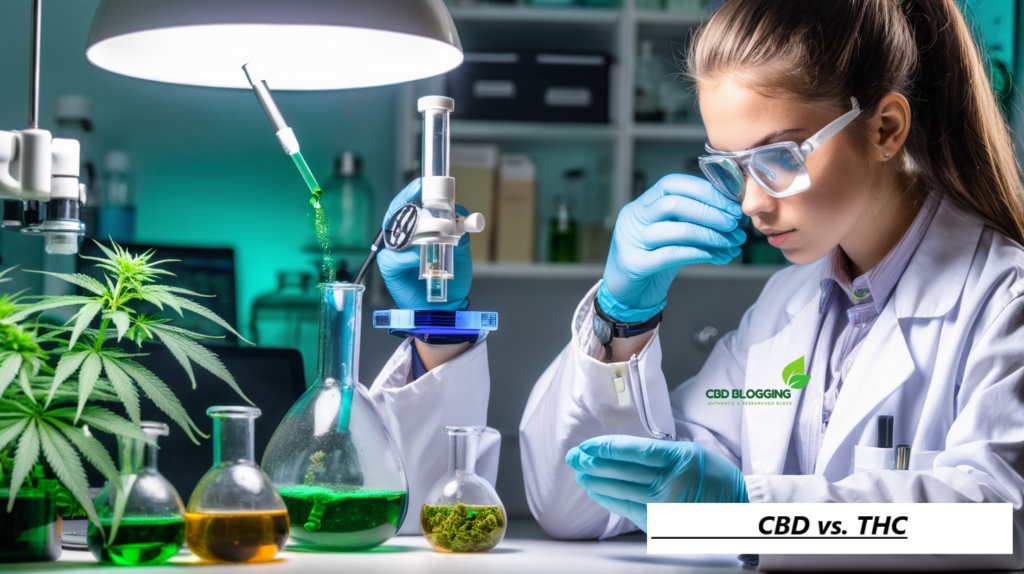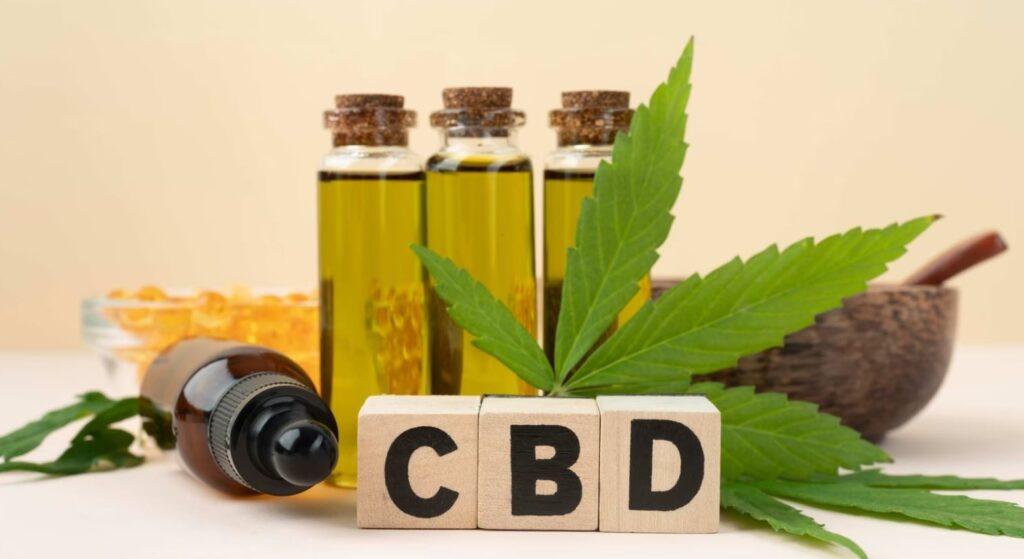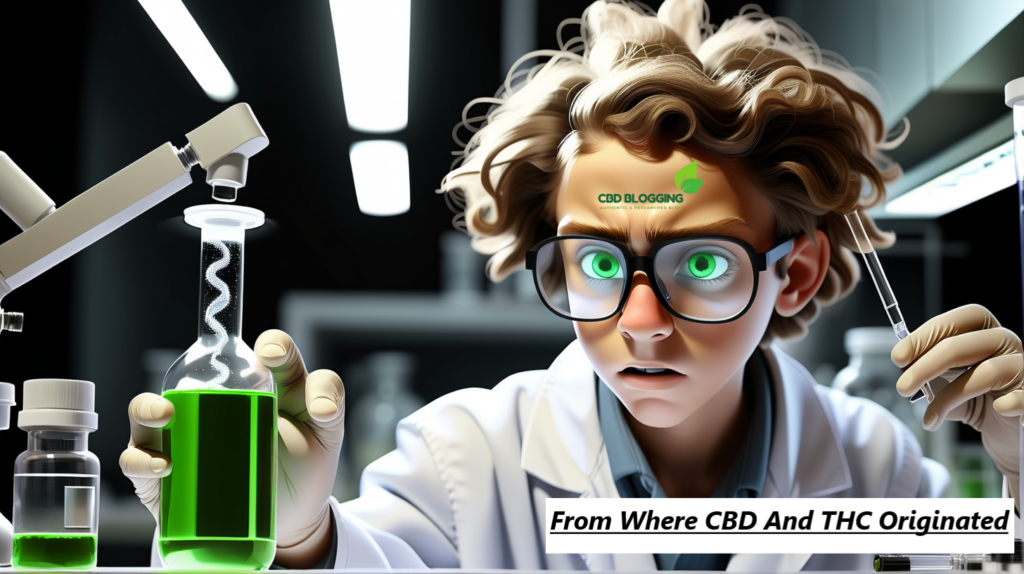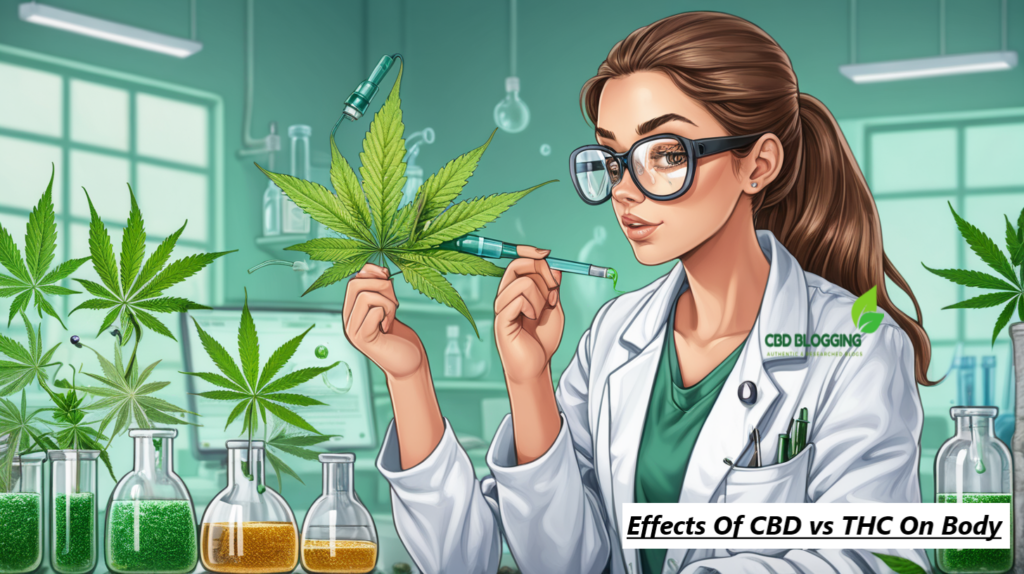In this blog, you will see CBD vs. THC, its benefits, origin of species, Molecular structure, and more.

As marijuana becomes legal in more places, you’ve definitely heard a lot about it. It derives from the cannabis plant, which produces a viscous substance rich in cannabinoids. The cannabis plant produces over 100 cannabinoids, including the two main ones, CBD and THC, which create drug-like effects in the body.
Learn “What Is THC?”

Delta-9-tetrahydrocannabinol (THC) causes the “high” sensation people experience after smoking or eating the cannabis plant, as it is the main active ingredient found in it.
Despite some states and cities legalizing marijuana for medicinal purposes, the United States Drug Enforcement Agency classifies marijuana and THC-containing products as Schedule 1 prohibited narcotics due to their high potential for abuse and lack of medical value.
THC comes in three forms: the herb variety, prepared from dried cannabis leaves and flowers (known as buds), hash/hashish, and hash oil. People can smoke it or add it to food or drinks.
Hash is a solid or paste-like material made by compressing or refining the resin from cannabis buds. Hash oil, the most potent form, is created by extracting the resin in hash to its purest form.
What Is CBD?

CBD stands for cannabidiol and is derived from the Cannabis plant. Unlike THC, CBD is not psychoactive and does not produce a “high”. CBD is more widely available in the United States than THC, although each state has its own rules and restrictions on CBD sales.
CBD is available in various forms such as oils, extracts, patches, vapes, and topical lotions. It has been linked to several health benefits. Epidiolex, the first FDA-approved drug derived from marijuana, uses CBD as its active ingredient to treat epilepsy.
From Where CBD And THC Originated
CBD and THC are two compounds derived from the same plant, Cannabis sativa. However, they have significant differences between them.
CBD is typically obtained from the hemp plant, which is a form of cannabis plant that contains very little THC, usually less than 0.3%. In contrast, marijuana is defined as cannabis plants that have more than 0.3% THC.

Both THC and CBD come from the resin found on the leaves and buds of female cannabis plants. However, CBD can also be present in the flower heads of the hemp plant.
Synthetic cannabinoids, also known as synthetic marijuana, Spice, or K2, are man-made compounds that imitate the effects of THC. These psychoactive substances produce different effects than THC and can lead to dangerous reactions.
CBD vs. THC
| Aspect | CBD (Cannabidiol) | THC (Tetrahydrocannabinol) |
|---|---|---|
| Psychoactive Effects | Non-psychoactive | Psychoactive (gets you high) |
| Medical Uses | Helps with inflammation, anxiety, seizures | Helps with pain, nausea, appetite |
| Legal Status | Legal in many places, especially if it has very little THC | Often illegal because it can make you high |
| Side Effects | Usually mild, like tiredness or slight sickness | Can make your mouth dry, your eyes red, and affect memory |
| Drug Tests | Less likely to make a drug test positive | Can make a drug test positive, even with small amounts |
Molecular Structure Of CBD
Molecular Structure Of THC
BD and THC share the same chemical formula: 21 carbon atoms, 30 hydrogen atoms, and two oxygen atoms. However, the atoms are organized differently, resulting in various chemical properties and consequences on your body.
Both alter how your brain cells communicate with one another.
Also Read: What Does Collate Mean When Printing? – Full Guide
Effects Of CBD vs THC On Body

THC and CBD make you feel different when you use them. Here’s how
CBD effects
Scientists have identified several “molecular targets” in your body that can be affected by CBD.
Researchers believe that CBD works by slowing down messages to the brain, reducing inflammation, and changing the level of calcium in brain cells, all of which contribute to cell communication. However, it remains unclear how exactly CBD achieves these effects.
One major concern with CBD products is the potential presence of other substances. Since most of these products are not regulated by the FDA, their purity cannot be guaranteed. A study on CBD products revealed that over 25% of them contained less CBD than indicated on the label, and some also contained THC. This can lead to a false positive on a drug test. The FDA has issued several warnings to companies that offer these products, emphasizing the importance of exercising caution before using them.
THC, found in marijuana, stimulates the areas of the brain that respond to pleasure and triggers the release of dopamine, the “feel good” hormone that creates a calm, euphoric feeling. The concentration of THC in marijuana varies, and the higher the concentration, the greater its efficacy and impact on the body and brain. Today’s marijuana plants are more potent than ever, with an average THC concentration of 15%, up from around 4% in the mid-1990s. These higher levels may lead to certain mental health consequences for users, such as hallucinations, delusions, and psychosis.
Also read: Does Smoking Marijuana Increase Lung Cancer Risk?
Benefits “CBD vs THC”
People take CBD and THC to alleviate a wide range of physical and mental health issues.
While more research is needed to understand it, some evidence suggests that CBD may assist disorders such as:
- Anxiety Inflammation
- Nerve-related discomfort.
- Muscle stiffness and spasms due to MS or ALS
- Chronic or nerve pain.
- Epilepsy or seizure
- Parkinson’s Disease Tremors
- Nausea
- Glaucoma
- Appetite stimulation for patients with HIV/AIDS.
- Agitation in Alzheimer’s disease.
- Crohn’s disease.
- Symptoms of PTSD
CBD Versus THC For Anxiety
Some research indicates that CBD may help lessen anxiety-like behavior in animals. However further research is needed to see whether this response applies to humans. A tiny study found that participants who used CBD had better sleep and anxiety, but further research is needed to confirm the findings.
One study evaluated medicinal marijuana, CBD, and a placebo (false medication) for reducing anxiety in veterans with PTSD. The study discovered that all three groups experienced considerable improvements in their symptoms. However, individuals who received THC or CBD received the same benefits as those who received neither.
Another study discovered that lower dosages of THC appear to reduce anxiety in some users, but higher levels can make others more anxious.
Legality Point Of View
CBD derived from hemp is legal at the federal level and in most states, but some states have imposed restrictions.
Marijuana is legal for both medical and recreational purposes in several states, but it still remains illegal under federal law in the United States.
As of April 2023, medicinal marijuana is allowed in 38 states, three US territories, and the District of Columbia. In these states, people can use THC with a prescription.
However, the FDA has not approved CBD or THC for most medical conditions. Only Epidiolex has been approved for certain seizure disorders, along with two synthetic cannabis medications, dronabinol (Marinol, Syndros) and nabilone (Cesamet), which are primarily used to treat chemotherapy-induced nausea.
A review is currently underway that could potentially change the classification of marijuana under federal law. In August 2023, the Department of Health and Human Services submitted its recommendations to the DEA, which has the final say on the matter.
Conclusion
In conclusion, understanding the differences between CBD and THC is crucial for making informed decisions about their use. While CBD offers potential therapeutic benefits without the psychoactive effects associated with THC, it’s essential to consider factors like legality, purity, and potential side effects. CBD may help with inflammation, anxiety, and seizures, while THC is known for its pain-relieving and appetite-stimulating properties. However, THC’s psychoactive nature and legal restrictions pose challenges. It’s vital to consult healthcare professionals before using cannabis-derived products, especially for medical purposes. By staying informed and seeking guidance, individuals can navigate the complexities of CBD and THC responsibly.
Continue Reading……………

Leave a Reply